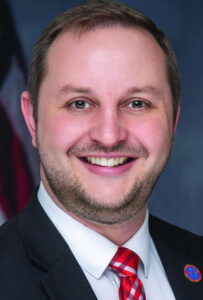Council passes alcohol laws
The Russellville City Council passed an ordinance Monday to control the legal sale of alcohol inside the city.
Voters passed the legalization of alcohol sales in November.
The 29-page document outlines where, when and how much businesses will be charged in order to sell alcohol.
The ordinance excludes businesses from using alcohol-related signs, bans the sale of draft beer and legal sales on Sunday and establishes the distance that businesses can be located from schools, churches and daycare facilities – a distance that ranges from 500 feet for lounges to zero feet for restaurants.
While these specifications may sound easy for potential sellers to follow, business owners will pay a heavy price to sell alcohol here.
Club liquor licenses cost $10,000 per year, lounge liquor licenses cost $5,000, motels and hotels will pay $3,500 per year, package stores will pay $5,000 and restaurants will pay $1,500.
The ordinance differentiates that a club is a private entity that requires a membership while a lounge is defined as a public place such as a bar.
All licensees will have to pay an additional tax of 15 percent of their gross receipts each month to maintain their license as well.
The ordinance also requires business owners to pay a $10,000 bond for each business location. That bond will be held by the city during the time the owner holds the license.
Before a business owner can consider license costs, however, the owner will be required to undergo a review process to obtain a license to sell alcohol.
A review committee will consider license requests.
“Regardless of which side of the issue we were on, we set out with the difficult task of balancing the wishes of both sides,” city councilman Jeff Masterson said.
“Although I know this isn’t a perfect ordinance, I rest assured knowing that we have a chief of police and department that will keep this in check with the support of this Mayor and Council. Personally, next I’d like to see any income realized from this dedicated to paving, schools and employee raises. However this is a starting point.”
Councilman William Nale agreed that he would like to see money earmarked for specific projects such as schools and capital outlay. The current ordinance will place all of the money in the general fund.
Councilman Lanny Hubbard and Mayor Troy Oliver both agreed that the ordinance would most likely be amended in the future.
“We are going to revisit this in 90 days,” Hubbard said. “We will look at what loopholes there are.”








